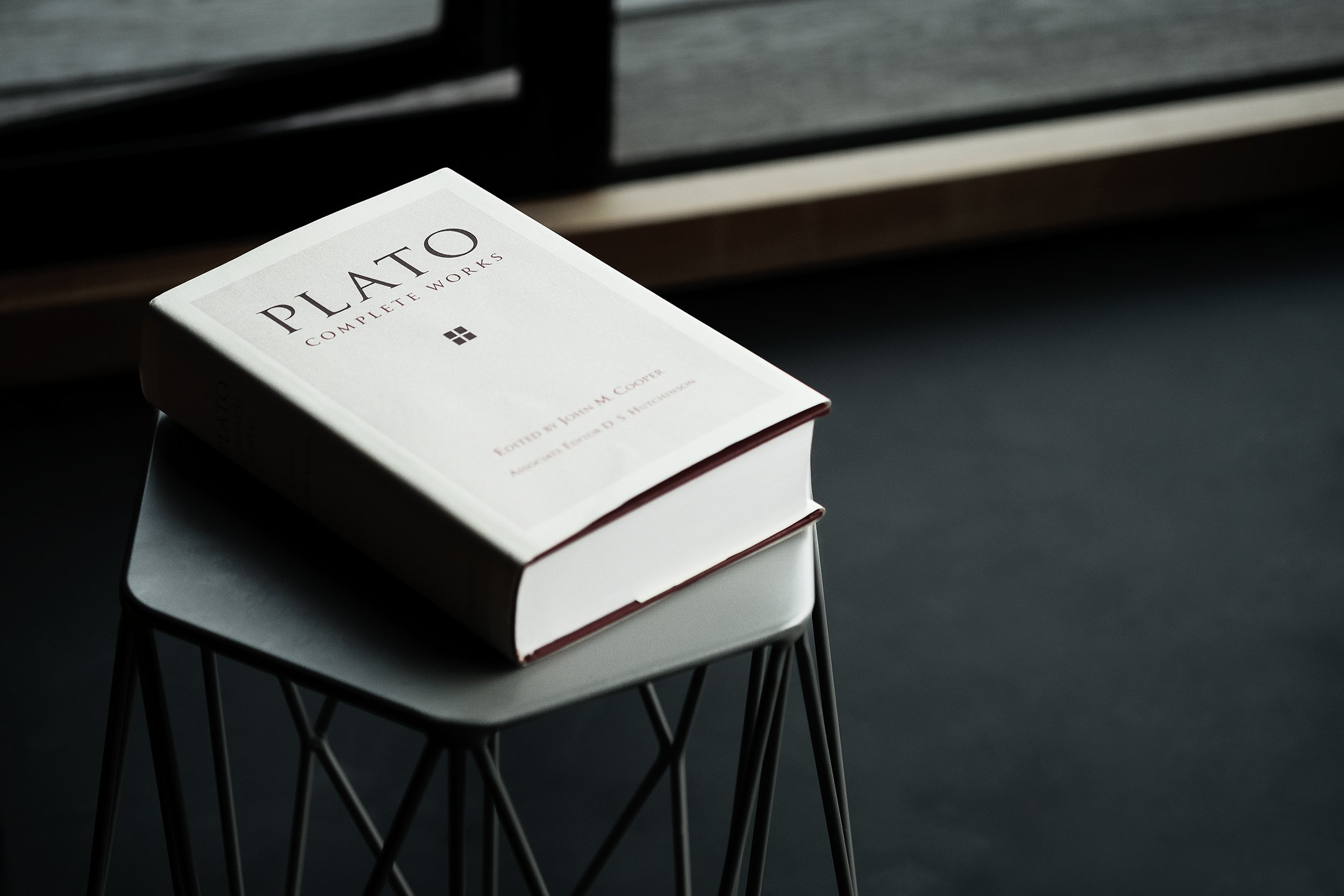Philosophy and Architecture
Plato’s Complete Works - Edge House.
"Beauty of style, harmony, and grace depend on simplicity."
- Plato
In the realm of architecture, philosophy plays a pivotal role in shaping spaces that transcend mere functionality. By intertwining profound philosophical ideas with the art of design, architects can create spaces with aesthetic beauty and intention.
"Knowing yourself is the beginning of all wisdom."
- Aristotle
Integrating timeless philosophical principles from the history of human thought into architecture allows us to delve into the essence of human existence, framing and interpreting the values, beliefs, and aspirations that guide our clients. Through careful contemplation of these aspects, we tailor spaces that resonate deeply with our clients, promoting well-being and a sense of belonging.
"The mind is not a vessel to be filled, but a fire to be kindled."
- Plutarch
Our work draws influence from philosophical principles unique to each project and circumstance, encompassing ancient Greek thought from Aristotle to Plato, Romanticism, Pragmatism, Existentialism, and more. Each perspective contributes to the evolution of philosophical thought, humbly acknowledging that we stand on the shoulders of giants. Some of whose thoughts dance here between this writing.
In our studio, we believe that philosophy in architecture and thoughtful design elevates the creative process beyond aesthetics and practicality. By infusing spaces with meaningful ideas and timeless values, we leave a lasting impact on our clients' lives, cultivating purpose, connection, and fulfillment in the spaces they inhabit.
Your Journey
One of the aims in our studio is powerfully simple. To enrich lives through thoughtful work. If you'd like to explore this subject further, we've compiled a list of books that provide insight into the relationship between philosophy and architecture.
"The Architecture of Happiness" by Alain de Botton - Explores the connection between architecture and human emotions, and how our surroundings influence well-being and happiness.
"The Poetics of Space" by Gaston Bachelard - This philosophical classic delves into the phenomenology of architecture and its impact on our thoughts and emotions.
"The Language of Architecture: 26 Principles Every Architect Should Know" by Andrea Simitch and Val Warke - Explores architectural design principles informed by philosophical ideas, creating more meaningful spaces.
"Biophilic Design: The Theory, Science, and Practice of Bringing Buildings to Life" by Stephen R. Kellert, Judith H. Heerwagen, and Martin L. Mador - Explores biophilic design, creating connections between people and nature through architecture for well-being and productivity.
"The Eyes of the Skin: Architecture and the Senses" by Juhani Pallasmaa - Explores the sensory experience of architecture and its impact on emotions and well-being.
"The Architecture of Community" by Leon Krier - Explores the importance of traditional and human-scale architecture in fostering a sense of community and belonging.
—

